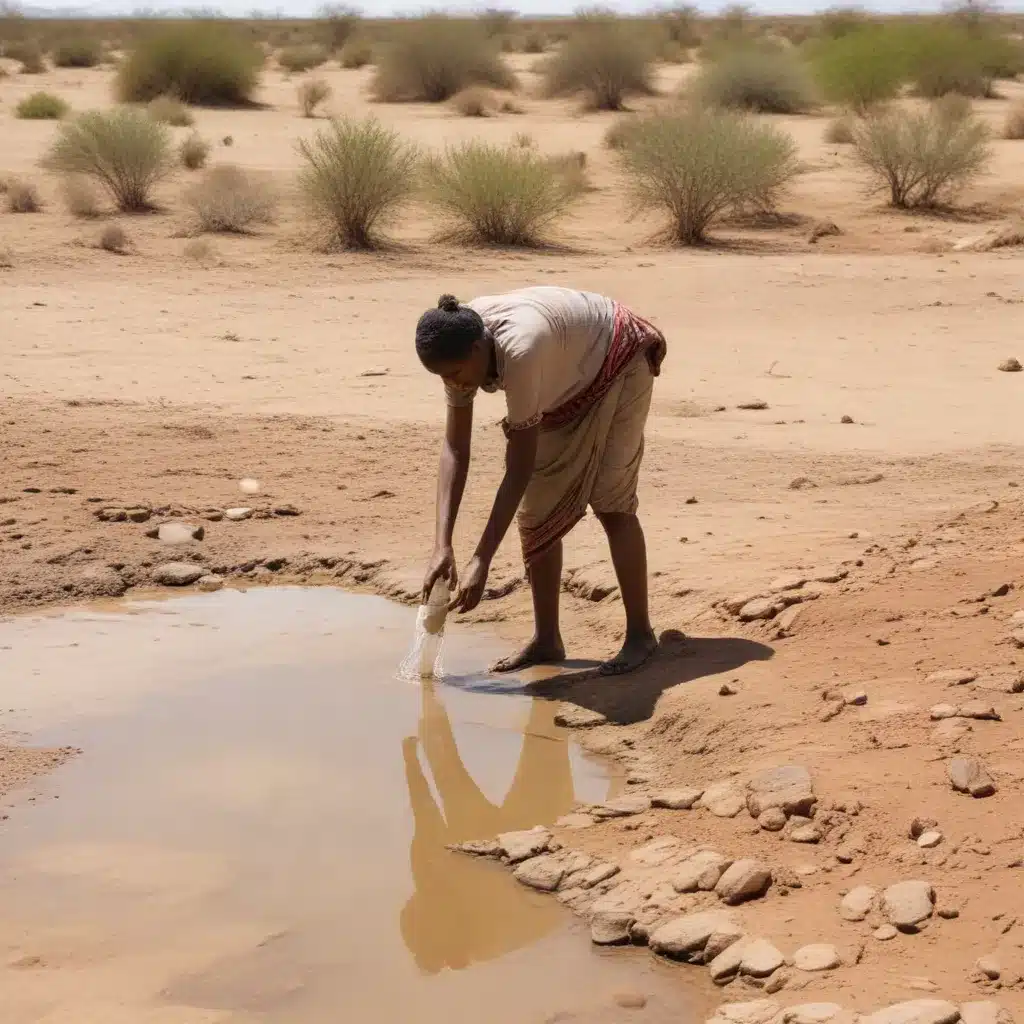
Addressing Water Scarcity in Arid and Semi-Arid Regions: Strategies for Climate Change Adaptation
The Alarming Realities of Water Scarcity
Climate change is posing an existential threat to the Middle East and North Africa (MENA) region, amplifying preexisting vulnerabilities and creating new risks. Governments in the region must urgently adopt inclusive reforms and ambitious climate adaptation strategies to build resilience and protect their citizens.
The MENA region is already one of the world’s most water-scarce areas, and its water challenges are only set to worsen. Rising temperatures, declining precipitation, extended droughts, and saltwater intrusion will further deplete freshwater supplies and disrupt agriculture – the sector that consumes the lion’s share of the region’s water resources.
Yet the region’s response has thus far been inadequate. Most MENA countries have prioritized climate change mitigation over adaptation, neglecting the needs of vulnerable communities and failing to empower local actors to build resilience. This top-down, technocratic approach has left marginalized populations – including migrants, refugees, minorities, and the rural poor – increasingly exposed to the devastating impacts of water scarcity.
“Climate change is not the main driver of or even a major contributing factor to violent conflict, protests, or riots. The popular theory that posits a direct causal link between global warming, droughts, rural-urban migration, and the 2011 social unrest that led to the Syrian Civil War has been convincingly discredited by multiple scholars.” – Frederic Wehrey, Carnegie Endowment for International Peace
Uneven Impacts and Inequitable Responses
While the MENA region as a whole faces grave climate threats, the consequences will be felt unevenly across the countries and communities. Oil-exporting states may be better equipped to withstand climate shocks through measures like desalination and agricultural investments. But resource-poor countries lacking in adaptive capacity will suffer more acutely.
In Saudi Arabia, for example, a combination of rising temperatures, flash floods, droughts, and sea-level rise poses severe risks. Marginalized groups like migrant workers, sectarian minorities, and stateless Bidoon populations are especially vulnerable, as they often lack legal protections, access to social services, and a voice in decision-making processes.
“To achieve a just and sustainable future for all, it is essential to integrate comprehensive, participatory approaches into climate change initiatives in Saudi Arabia. Technical and environmental reforms should be linked to social reforms that promote greater inclusivity, equity, and participation at all levels of society.” – Justin Dargin, Carnegie Endowment for International Peace
Similarly, in Iraq, the Mesopotamian Marshes – a UNESCO World Heritage site – are on the brink of disappearing due to upstream damming, climate change-driven water scarcity, and poor resource management. The marshes’ reliance on the Tigris and Euphrates rivers makes them highly vulnerable, and the impacts fall disproportionately on the Marsh Arabs, an already marginalized community.
“Restoring other parts of the marshlands has been a slow process, but by 2007, approximately 70 percent had been reflooded. Over recent years, however, additional restoration—and even the maintenance of restored areas—has been severely hindered by declining water levels due to the construction of upstream dams and diversions, both within Iraq and in upstream countries; poor management of water resources overall; deteriorating water quality; and climate change.” – Zainab Mehdi
Empowering Local Solutions
Across the MENA region, grassroots initiatives and local actors are stepping up to build climate resilience, often in the face of governmental inaction and top-down policy failures. In Tunisia, civil society groups and municipal authorities are pioneering efforts to address waste management, water scarcity, and other climate-related challenges, despite lacking the resources and political support from the national government.
“To help develop effective climate mitigation strategies, Tunisia’s civil society has pushed different proposals for solid waste management and water availability and quality, the top two issues that Tunisians identify in public opinion polling as their biggest environmental concerns.” – Sarah Yerkes and Haley Clasen
In Libya, local municipalities and community groups are leading innovative initiatives to combat the effects of climate change, including tree-planting campaigns, pollution cleanup drives, and the installation of solar panels. These bottom-up efforts demonstrate the potential for decentralized, participatory approaches to building resilience.
“Harnessing and enabling such grassroots mobilization, through budgetary and legal reforms as well as climate-specific and climate-sensitive assistance, ought to be a greater priority for Libyan authorities as well as foreign governments and NGOs.” – Frederic Wehrey
Toward an Integrated, Inclusive Climate Governance Approach
To effectively address the water crisis and build climate resilience in the MENA region, governments must shift away from top-down, technocratic policies and embrace more inclusive, participatory, and decentralized approaches. This will require:
-
Empowering local authorities and civil society: Empower municipal governments and community groups to lead climate adaptation efforts, providing them with the necessary resources, training, and legal authority.
-
Centering marginalized communities: Ensure that vulnerable populations, including migrants, refugees, minorities, and the rural poor, are actively engaged in the design and implementation of climate policies and have access to essential services and social protections.
-
Adopting an integrated, “nexus” approach: Recognize the interconnections between water, energy, food, and environmental systems, and develop holistic, cross-sectoral strategies to address these challenges.
-
Strengthening regional cooperation: Facilitate cross-border collaboration on shared water resources and climate adaptation strategies, while respecting national sovereignty and the rights of all riparian states.
-
Leveraging international support and climate finance: Mobilize international donors, development agencies, and climate funds to support the MENA region’s adaptation efforts, with a focus on equitable and sustainable solutions.
By embracing these principles, MENA governments can build a more just, resilient, and climate-adaptive future for their citizens. The time for incremental, technocratic responses has passed – bold, transformative action is needed to confront the region’s water crisis and safeguard its communities against the devastating impacts of climate change.

